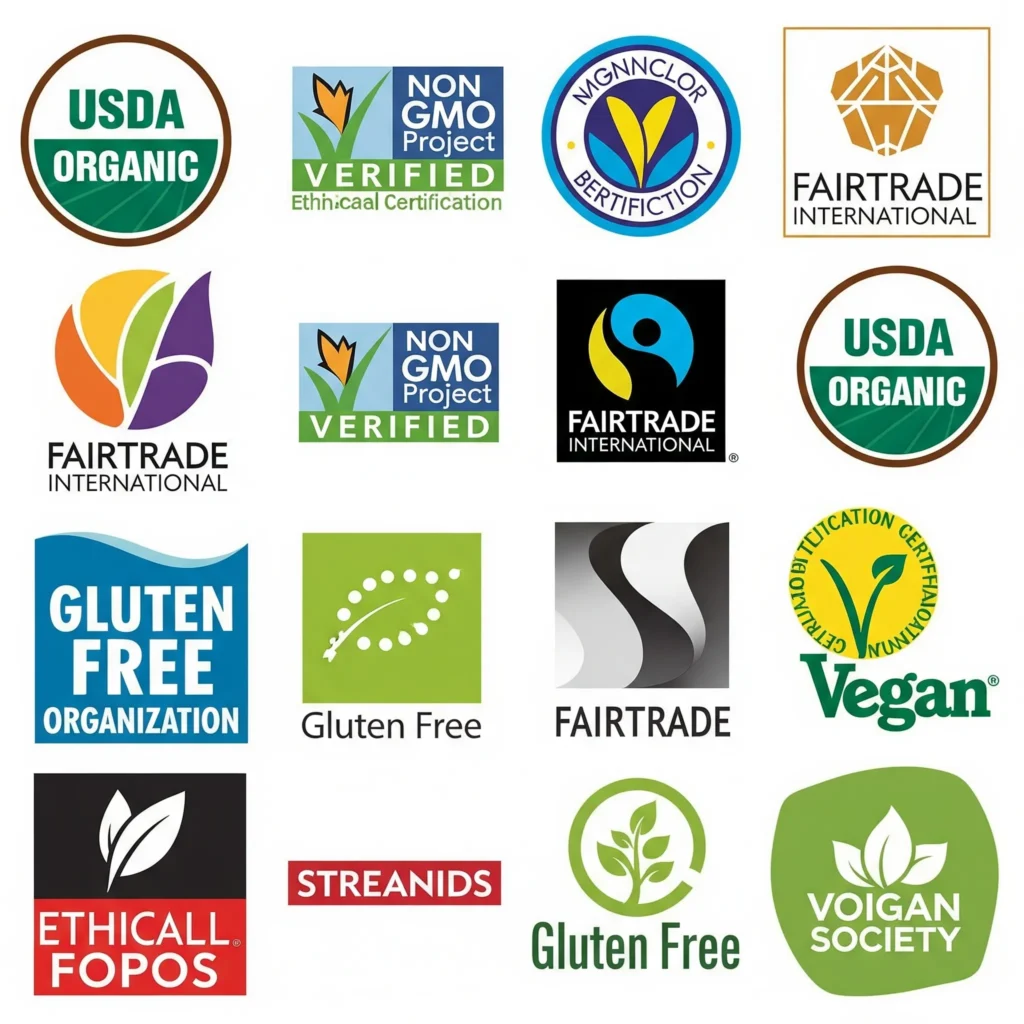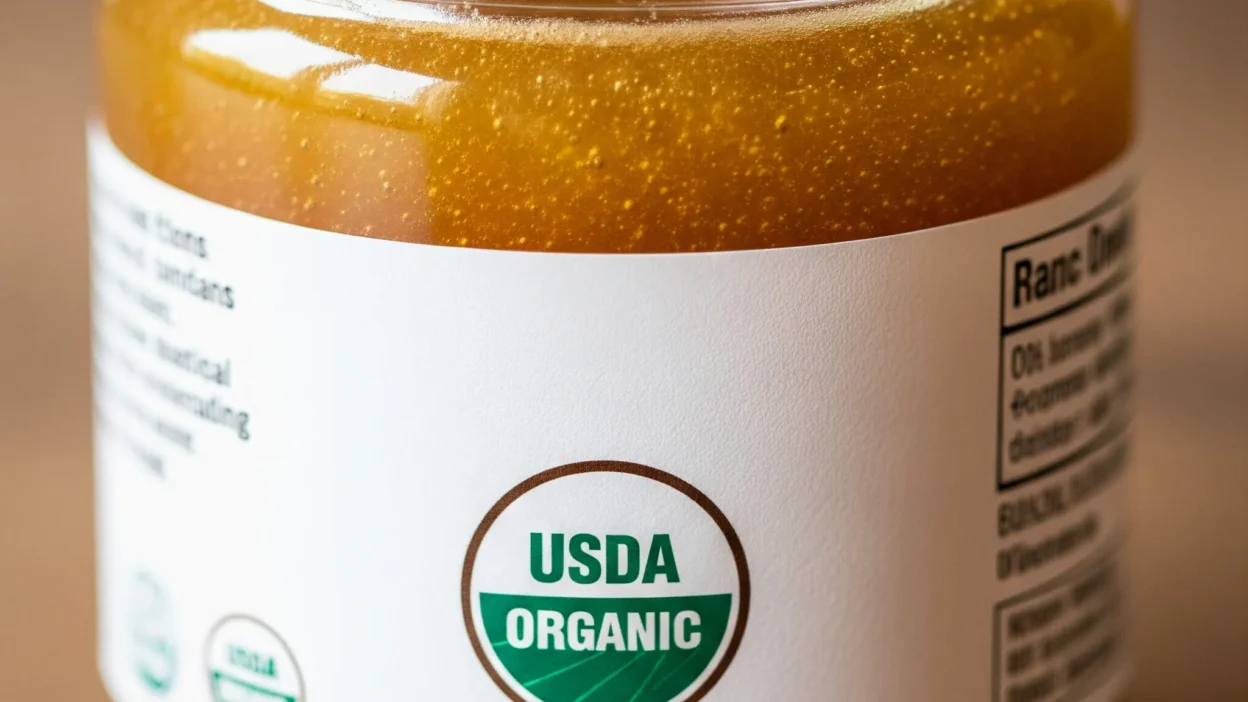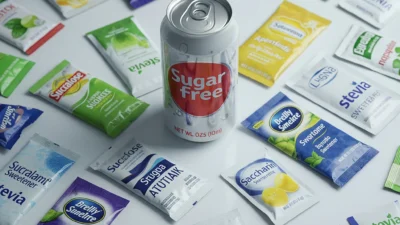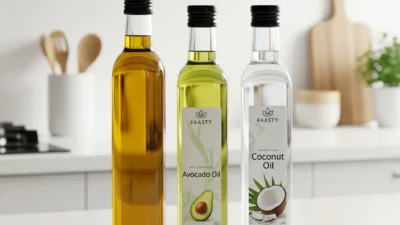In today’s bustling supermarkets, food labels often feature a dizzying array of certifications. From “Organic” to “Non-GMO Project Verified” and “Fair Trade Certified,” these symbols promise a deeper meaning behind your purchase. But what do they truly signify? Gaining a clear understanding of food certifications: organic, non-GMO, fair trade & more is crucial for making informed choices that align with your health values, ethical considerations, and environmental concerns. Let’s demystify these labels and explore why they matter to you.
Why Food Certifications Matter to Consumers
Food certifications serve as powerful signals in a crowded marketplace. They help consumers quickly identify products that meet specific standards, often going beyond basic nutritional information. In fact, a 2019 survey revealed that 85% of consumers trust independent, third-party certification organizations to verify product claims. This trust is vital because these labels connect brands with conscious consumers, meeting their expectations for clean, “free-from,” and sustainably sourced ingredients.
Certifications also provide competitive differentiation. In the mere 13 seconds most consumers take to make buying decisions, well-recognized certification marks like organic, non-GMO, and gluten-free help products stand out on the shelf. Therefore, these labels are not just about compliance; they are about building trust and guiding consumer choices.
Understanding Key Food Certifications
Let’s break down some of the most prominent food certifications you’ll encounter.
Organic Certification: A Holistic Approach
The “Organic” label is perhaps one of the most recognized and rigorously defined certifications. To earn this designation, growers must adhere to practices that foster healthy soil, such as crop rotation and adding organic matter like manure. While synthetic pesticides and fertilizers are generally prohibited, some exceptions exist. Furthermore, organic products must be produced without excluded methods like genetic engineering, ionizing radiation, or sewage sludge.
In the United States, the USDA National Organic Program (NOP) oversees organic regulations, ensuring consistency nationwide. Products displaying the USDA organic seal must contain at least 95% certified organic ingredients. There are also other categories:
- “100% Organic”: This label is reserved for products containing exclusively organic ingredients (excluding salt and water).
- “Made with Organic”: This indicates that a product contains at least 70% certified organic ingredients, and any non-organic ingredients must not have been grown using prohibited practices.
- “Specific Organic Ingredient Listings”: Products with less than 70% organic content can only list certified organic ingredients as organic in the ingredient list, without using the USDA organic seal.
Consumers show significant trust in this label, with 41% of natural shoppers more likely to buy products with USDA organic certification.
Non-GMO Project Verified: Avoiding Genetic Engineering
The Non-GMO Project Verified label signifies that a product has been produced without genetic engineering. Unlike the organic label, which is federally managed, the Non-GMO Project is backed by an organization and does not have a legal definition under federal programs. Nevertheless, it holds considerable weight with consumers; a 2020 survey found that 36% of natural shoppers are more likely to purchase products with this certification. This label directly addresses consumer concerns about genetically modified organisms (GMOs) in their food supply.
Fair Trade Certified: Ethical Sourcing and Social Responsibility
Fair Trade certification focuses on social and economic standards, ensuring fair treatment and equitable compensation for farmers and workers in developing countries. Like the Non-GMO Project, Fair Trade is an organization-backed certification without a federal legal definition. However, its emphasis on ethical sourcing resonates strongly with conscious consumers, with 21% of natural shoppers prioritizing Fair Trade-certified products. This certification helps consumers support equitable global trade practices.
Other Important Certifications to Know
Beyond these prominent labels, several other certifications cater to specific consumer demands:
- Certified Plant Based: This label indicates that a product is free from animal-derived ingredients, appealing to vegan and vegetarian consumers.
- Certified Gluten-Free: This certification assures consumers that a product meets strict standards for gluten content, crucial for individuals with celiac disease or gluten sensitivity.
- EWG Verified® (Environmental Working Group): This certification ensures products avoid ingredients with health or ecotoxicity concerns, require full ingredient transparency, and adhere to good manufacturing practices.
- Sustainability Certifications for Companies: Labels like 1% For The Planet and B-Corp are awarded to environmentally conscious brands that invest in reducing energy use, managing waste, and ensuring fair treatment of workers. These certifications reflect a company’s broader commitment to environmental and social responsibility.
The Value Beyond the Label
The proliferation of food certifications reflects a growing consumer demand for transparency and accountability in the food industry. These labels empower you to make choices that align with your personal values, whether those are health-focused, environmentally driven, or ethically motivated. They simplify complex information, allowing you to quickly assess a product’s adherence to specific standards.
Furthermore, certifications drive positive change within the food industry. As consumer preference shifts towards certified products, brands are incentivized to adopt more sustainable, ethical, and health-conscious practices. This creates a virtuous cycle where consumer demand fuels industry improvement.

Conclusion
Navigating the world of food labels can seem daunting, but gaining an understanding of food certifications: organic, non-GMO, fair trade & more equips you with powerful knowledge. These certifications are more than just symbols; they are commitments to quality, sustainability, and ethical practices. By recognizing and supporting certified products, you contribute to a food system that is healthier for individuals, fairer for communities, and more sustainable for the planet. Every certified product you choose is a vote for the values you believe in.





